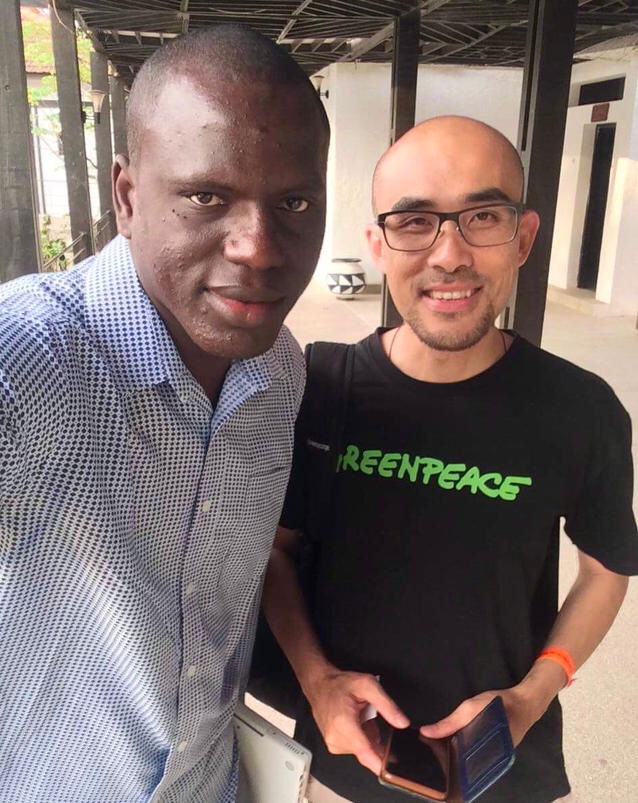Mustapha Manneh’s Top 5 Insights from the Greenpeace AGM in Dakar

Mustapha Manneh, a renowned environmental activist and strategist, recently attended the annual general meeting (AGM) of Greenpeace, one of the leading organizations in global environmental advocacy. His key insights from the event shed light on the current strategies, challenges, and advances in the fight against climate change. Understanding these insights can provide invaluable knowledge for those involved in environmental activism and policy-making. Here are Mustapha Manneh’s top 5 insights from the Greenpeace AGM:
1. Renewed Focus on Ocean Conservation
Greenpeace has historically placed a significant emphasis on ocean conservation, and 2018 year AGM highlighted a renewed commitment to these efforts. Mustapha outlined several new initiatives aimed at protecting marine biodiversity, including the launch of campaigns against overfishing and plastic pollution. He emphasized the importance of international cooperation in these endeavors, citing the organization's plans to work more closely with governments and other NGOs to establish marine protected areas and enforce stricter regulations on marine pollution.
2. Expansion of Renewable Energy Initiatives
During the AGM, there was a clear push towards expanding Greenpeace’s role in advocating for renewable energy adoption. Mustapha shared his enthusiasm for the new campaigns aimed at accelerating the transition from fossil fuels to renewable energy sources like solar and wind power. He discussed how Greenpeace plans to challenge global leaders and nations to commit to more ambitious energy targets and highlighted their strategy to support grassroots movements advocating for local renewable projects.
3. Emphasis on Climate Justice
One of Mustapha Manneh’s most poignant takeaways from the meeting was the organization's heightened focus on climate justice. He discussed how Greenpeace is putting more resources into ensuring that climate action benefits all communities equitably, particularly marginalized and indigenous populations who are most affected by climate change. This includes advocating for policies that not only reduce emissions but also improve the quality of life for these vulnerable groups.
4. Greater Engagement with the Youth
Recognizing the pivotal role of young people in shaping the future of environmental policy, Mustapha noted Greenpeace’s initiative to engage more deeply with youth movements across the globe. This strategy involves supporting youth-led initiatives, providing educational resources, and creating platforms for young voices in major environmental discussions. He expressed his support for this direction, citing the fresh perspectives and innovative ideas brought forward by younger generations.
5. Advocacy for Transparent and Sustainable Corporate Practices
Manneh highlighted Greenpeace’s ongoing efforts to hold corporations accountable for their environmental practices. The AGM underscored the importance of transparency in corporate activities related to environmental impact and sustainability. Mustapha praised the development of campaigns that scrutinize and expose businesses that fail to uphold environmental standards and praised efforts to support companies working towards more sustainable operations.
These insights from Mustapha Manneh regarding the Greenpeace AGM represent crucial focal areas of environmental activism. They underscore the organization's commitment to not only advocating for the earth’s ecological systems but also ensuring equity and inclusion in its strategy. The ideas presented by Manneh provide vital cues for other advocates and stakeholders in the environmental community, illustrating a comprehensive approach to tackling some of the most pressing environmental challenges of our times.
- Ocean Conservation: Continuous effort to combat overfishing and plastic pollution to protect marine ecosystems.
- Renewable Energy: Advocating for a swift transition from fossil fuels to renewable sources; supporting local and global renewable projects.
- Climate Justice: Ensuring climate solutions are equitable and benefit all communities, particularly the marginalized and those most vulnerable.
- Engagement with Youth: Supporting and empowering youth movements; integrating young perspectives into environmental policies.
- Sustainable Corporate Practices: Promoting transparency and sustainability in business operations; holding corporations accountable for environmental impacts.


